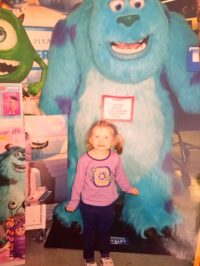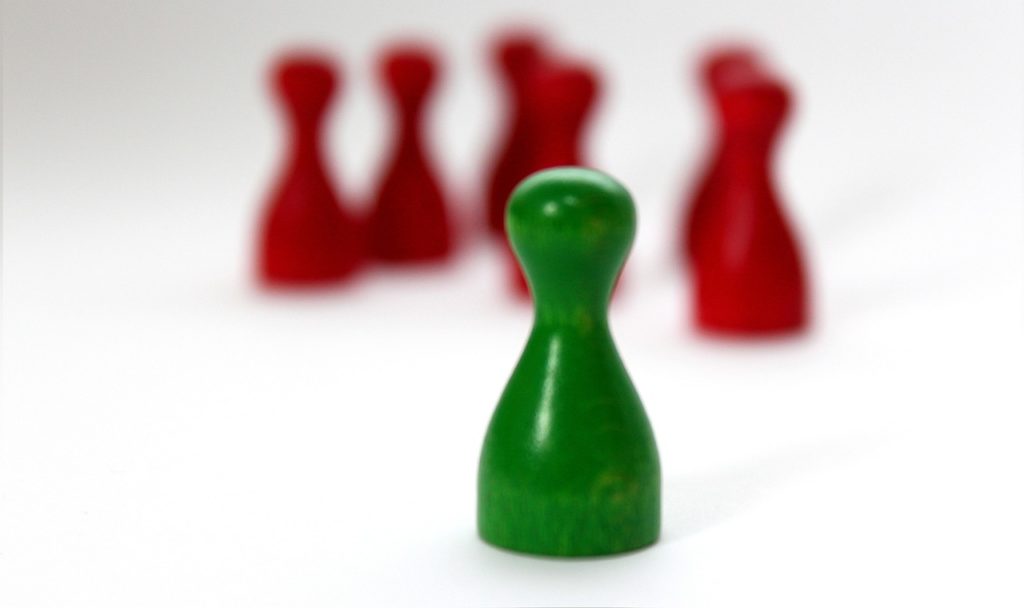*The first part of Harlie’s story can be found here
Harlie always felt she was different. When she was little she didn’t exactly have a name for it. But she felt it from the soles of her feet to the palms of her hands.
She felt it in the tiny little nuances and cadences of life. It followed her everywhere she went. The silent companion in every decision she made. But very tangible in every step she took. Always proclaiming she was different.
And she wore it around her neck like a chain.

Being different
Merriam-Webster’s dictionary defines different as:
- partly or totally unlike in nature, form, or quality
- not the same
- unusual, special
But what jumped out at me was the present participle of the Latin word for different. Did you know it means set apart?
The reason I bring it up is that we can’t talk about Harlie’s story until we deal with what it means to be different. Because it’s a recurring theme in her narrative. Not only in the way she felt about herself but also in how other people reacted to that difference and the ramifications those words, looks, and expressions had on her.
Her grandfather
Harlie’s skin condition (explained in part one of Harlie’s story) is hereditary and the first person to have it was her grandfather. Unfortunately, he struggled with difference. He chose to hide it because he was ashamed.
So being different can cause shame.
Her mother
Unlike Harlie’s grandfather, her mother didn’t deal with it in secret. Rather, she wanted to learn, educate, advocate and empower. Her desire was to help her children live their life to the fullest.
So being different means educating, advocating, and embracing.
Medical professional
Interestingly enough, the one group who should’ve been very supportive of Harlie’s difference wasn’t always so. Since EB is a rare condition, she encountered medical professionals who didn’t know about it and didn’t believe it was an actual condition. Imagine the frustration and humiliation of being told your condition doesn’t exist. Or being denied services because not much is known about your difference.
There’s frustration and humiliation in being different.
Teachers
I use this term loosely since Harlie was home schooled so her mother was her primary teacher. But she does talk about an activity she would’ve enjoyed. At first, the instructor doubted her disability and thought she was faking it to get out of running a lap. However, after watching her dedication in other areas, realized she was telling the truth. Although he saw her potential, he felt unable to work around her difference to find a solution for her to participate.
So sometimes being different means being misunderstood. It also may mean sacrificing and giving up on dreams because people don’t know how to work around the difference.
Strangers
These were probably the worst, they weren’t always wise in the way they dealt with difference especially since it wasn’t apparent. So there was a lot of judging, critical glances, awful words, and a lot of staring.
Being different makes you stand out and draws attention to yourself when you’d rather blend it.
Friends
It was a mixed bag when it came to friends. Some were uncomfortable with difference. Perhaps it revealed a vulnerability in themselves they hadn’t dealt with or didn’t want to explore. They would prefer not to know. It was safer that way.
Others did want to know because it was a part of who Harlie was. Not embracing her difference meant they weren’t accepting her. It was also an opportunity for them to help her shoulder through the difficult times and stand side by side with her.
So difference can isolate but it can also bring together.
Harlie
The next posts will be centered around how Harlie deals with difference.
